第61章 CHAPTER IX.(2)
A heavy shower of rain fell shortly after our camp was completed, when fortunately the baggage was under cover; this proved to be the last rain of the season, and from that moment the burning sun ruled the sodden country, and rapidly dried up not only the soil but all vegetation. The grass within a few days of the cessation of the rain assumed a tinge of yellow, and by the end of October there was not a green spot to relieve the eye from the golden blaze of the landscape, except the patches of grass and reeds that sprang from the mud banks of the retiring river. The climate was exceedingly unhealthy, but we were fortunately exceptions to the general rule, and although the inhabitants of Sofi were all sufferers, our camp had no invalids, with the exception of Mahomet, who had upon one occasion so gorged himself with half-putrid fish, that he nearly died in consequence. It would be impossible to commence our explorations in the Base until the grass should be sufficiently dry to burn; there were two varieties: that upon the slopes and hollows of the stony soil of the Atbara valley had been a pest ever since it had ripened; as the head formed three barbed darts, these detached themselves from the plant with such facility, that the slightest touch was sufficient to dislodge them; they immediately pierced the clothes, from which they could not be withdrawn, as the barbed heads broke off and remained. It was simply impossible to walk in this grass as it became ripe, without special protection; Iaccordingly tanned some gazelle skins, with which my wife constructed stocking gaiters, to be drawn over the foot and tied above and below the knee; thus fortified I could defy the grass, and indulge in shooting and exploring the neighbourhood until the season should arrive for firing the country. The high grass upon the table lands, although yellow, would not be sufficiently inflammable until the end of November.
The numerous watercourses that drained the table lands during the rainy season were now dry. No sooner had the grass turned yellow, than the pest of the country, the seroot fly, disappeared; thus the presence of this insect may be dated from about 10th July to 10th October. As the fly vanished, the giraffes also left the neighbourhood. By a few days' exploration, I found that the point of land from the junction of the Settite river with the Atbara, formed a narrow peninsula which was no wider than eight miles across from our encampment: thus the herds of game retreating from the south before the attacks of the seroot, found themselves driven into a cut-de-sac upon the strip of land between the broad and deep rivers the Settite and Atbara, which in the rainy season they dared not cross. All this country being uninhabited, there were several varieties of game at all seasons, but the three rainy months insure a good supply of elephants and giraffes;these retreat about thirty miles farther south, when permitted by the cessation of the flies to return to their favourite haunts.
My camp was in a very commanding position, as it was protected in front by the Atbara, and on the left by a perpendicular ravine about eighty feet deep, at the bottom of which flowed the rivulet called by the Arabs the "Till;" this joined the river immediately below our plateau. On our right was a steep and rugged incline covered with rocks of the whitest sandstone, through which ran veins of rich iron ore from four to five feet in width. I found a considerable quantity of fossil wood in the sandstone, and Ihad previously discovered on the Sofi side of the river, the fossil stem of a tree about twelve feet long; the grain appeared to be exceedingly close, but I could not determine the class to which the tree had belonged.
As the Atbara had fallen to the level of the small tributary, the Till, that stream was nearly exhausted, and the fish that inhabited its deep and shady waters during the rainy season were now fast retiring to the parent river. At the mouth of the stream were a number of rocks, that, as the water of the Atbara retreated, daily increased in size; these were evidently blocks that had been detached from the cliffs that walled in the Till.
As we were now entirely dependent upon the rod and the rifle for the support of our party, I determined to try for a fish, as Ifelt quite certain that some big fellows in the main river would be waiting to receive the small fry that were hurrying away from the exhausted waters of the Till.
I had a good supply of tackle, and I chose a beautifully straight and tapering bamboo that had been brought down by the river floods. I cut off the large brass ring from a game-bag, which Ilashed to the end of my rod; and having well secured my largest winch, that carried upwards of 200 yards of the strongest line, I arranged to fish with a live bait upon a set of treble hooks.